Twenty-eight critically endangered tortoises join conservation programme in Australia
Twenty-eight critically endangered Madagascan Radiated Tortoises have reached their permanent home joining a conservation programme at Darling Downs Zoo in Australia.
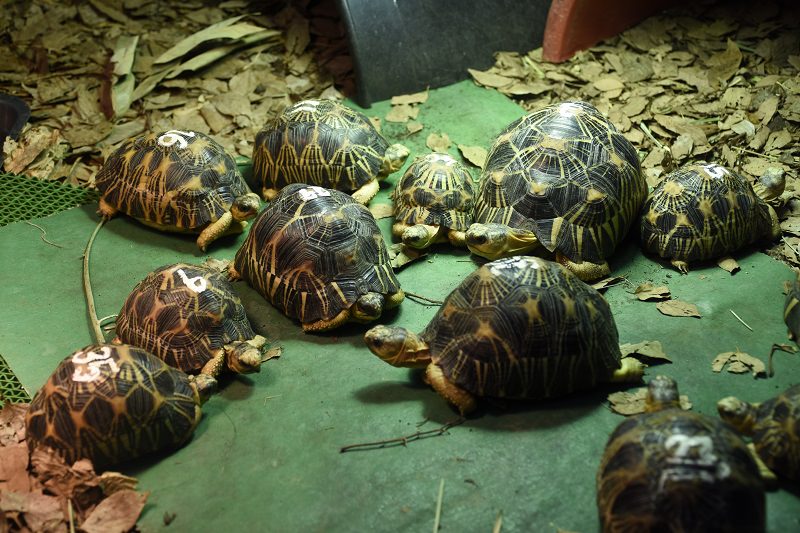 Juvenile Madagascan Radiated Tortoises in their temporary home at the KFBG Wild Animal Rescue Centre.
Juvenile Madagascan Radiated Tortoises in their temporary home at the KFBG Wild Animal Rescue Centre.
These beautifully patterned tortoises were confiscated by the local authorities between 2013 and 2015. They arrived from several different enforcement cases and were placed in the care of the KFBG Wild Animal Rescue Centre.
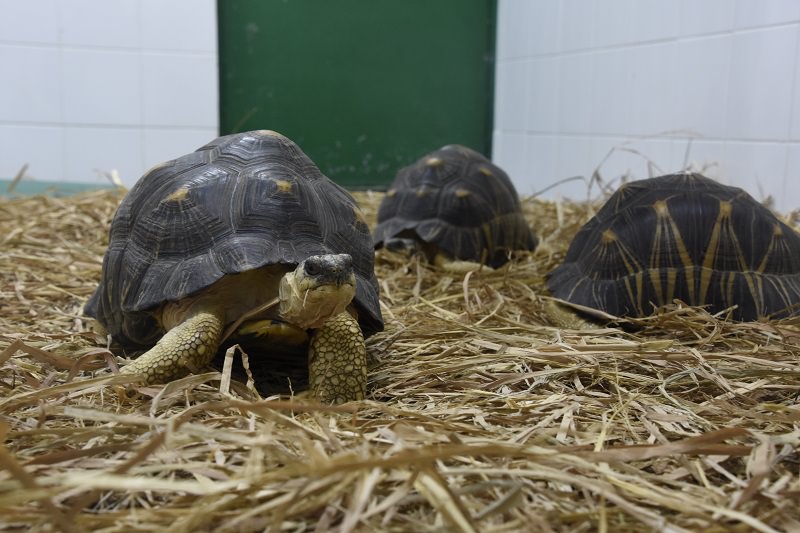 These are adult Madagascan Radiated Tortoises. This species can grow up to 40 cm and weigh up to 16 kg.
These are adult Madagascan Radiated Tortoises. This species can grow up to 40 cm and weigh up to 16 kg.
Radiated Tortoises are found only in Madagascar and nowhere else in the world. These herbivorous tortoises live in dry thorn forests and tropical woodlands in the south of the island.
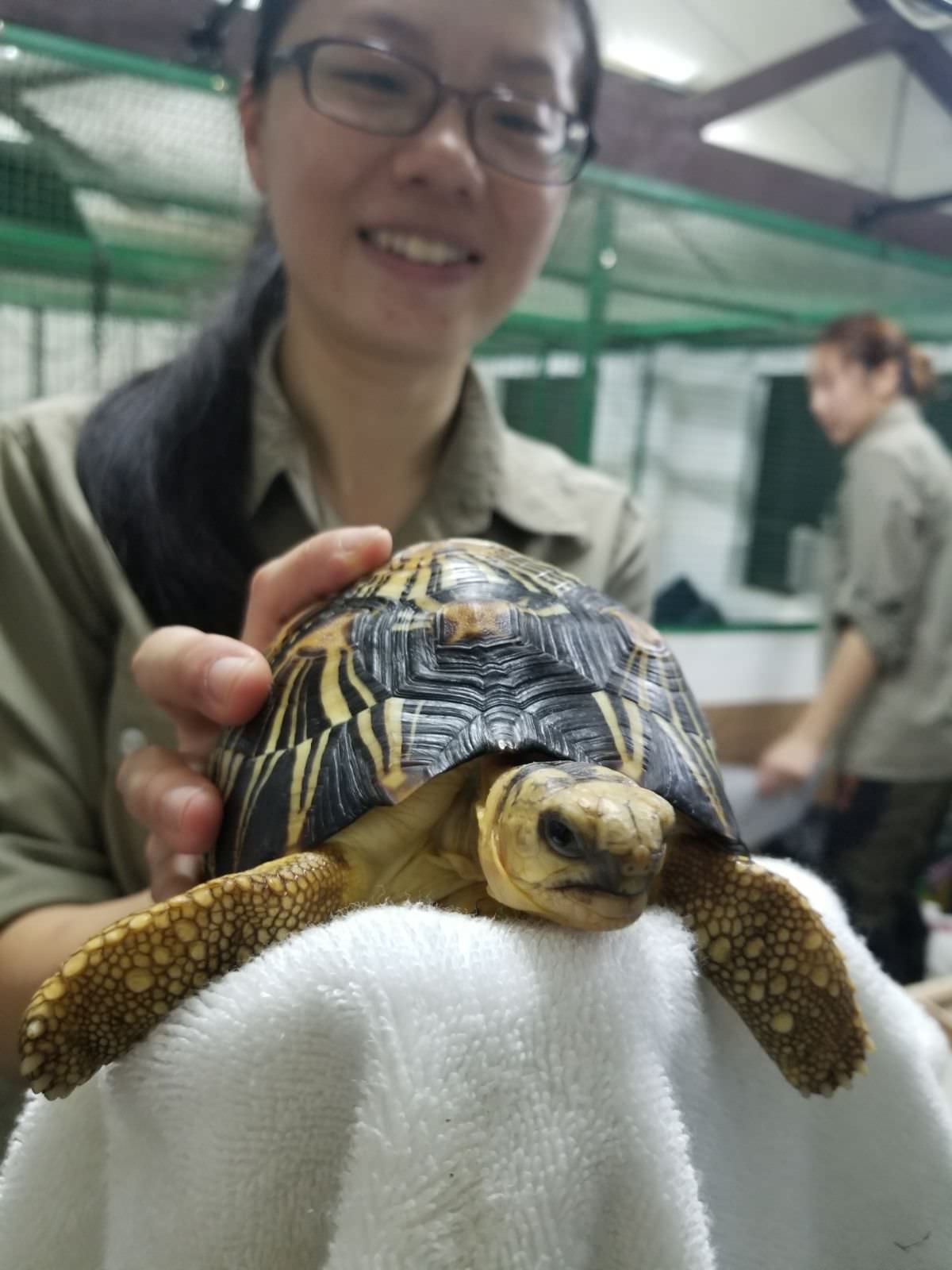 Staff prepare the Madagascan Radiated Tortoises for their long flight to their new permanent home at Darling Downs Zoo in Australia.
Staff prepare the Madagascan Radiated Tortoises for their long flight to their new permanent home at Darling Downs Zoo in Australia.
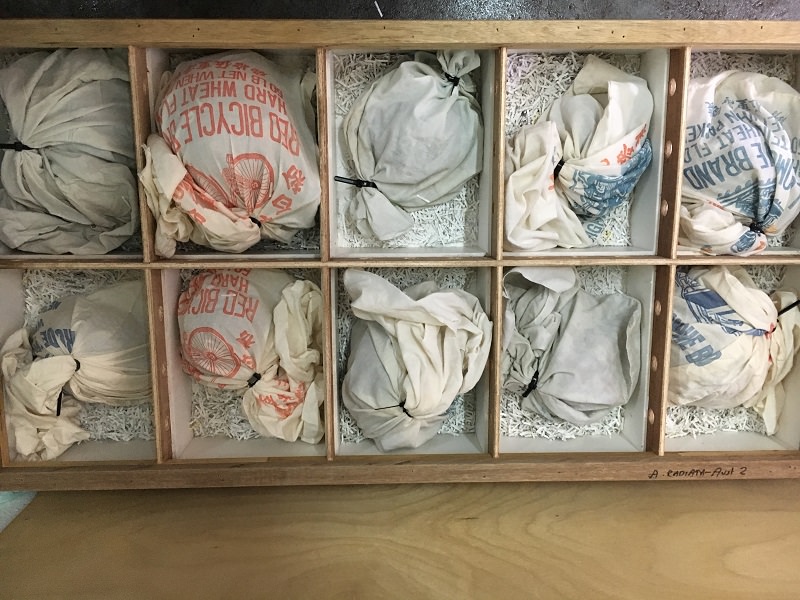 Each tortoise is packed carefully into an individual cotton bag, then placed into a custom built wooden crate built to meet international transport standards for the species.
Each tortoise is packed carefully into an individual cotton bag, then placed into a custom built wooden crate built to meet international transport standards for the species.
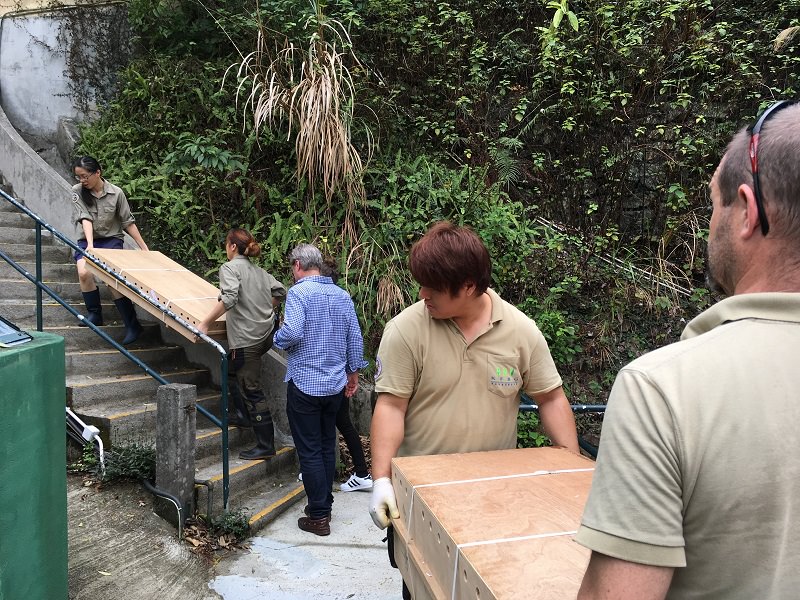
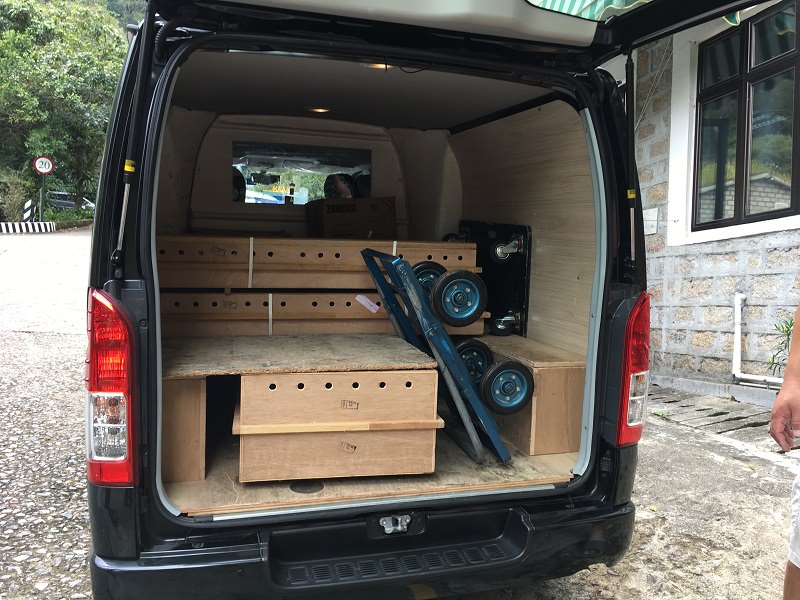
They are on the brink of extinction for two major reasons:
1. Their natural habitat is being destroyed to make way for farmland and charcoal production.
2. Their intricate and attractive yellow star patterns make them highly sought after as pets. Thus they are often poached from the forests where they belong and smuggled into the international pet trade.
Since its establishment, the KFBG Wild Animal Rescue Centre has received 436 Radiated Tortoises and has successfully placed 270 tortoises in conservation programmes.
How can you help endangered wildlife:
1. Avoid supporting the reptile pet trade by not buying tortoises
2. If you do wish to own a tortoise, check the origin and permit status of the animal first. Find out if the reptile was captive bred.
3. Do not buy endangered wildlife.
4. Report suspected illegal wildlife trade activities to the Agriculture, Fisheries and Conservation Department at 1823 or via KFBG hotline at 2483 7200.


